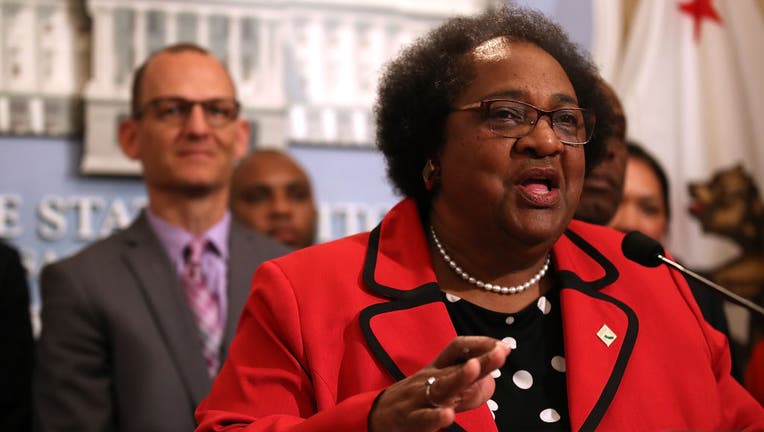California to study reparations for Black Americans

SACRAMENTO, CA - APRIL 03: California State Assemblymember Shirley Weber (D-San Diego) speaks during a news conference to announce new legislation to address recent deadly police shootings on April 3, 2018 in Sacramento, California. California State
SACRAMENTO, Calif. - California will develop a detailed plan for granting reparations to Black Americans under a new law Gov. Gavin Newsom signed Wednesday.
The law creates a nine-member task force to come up with proposals for how the state could provide reparations to Black Americans, what form those reparations might take and who would be eligible to receive them.
California Assemblywoman Shirley Weber (D-San Diego), chair of the Legislative Black Caucus, is the author of AB 3121.
The reparations would not be limited to slavery, but the law requires the task force to give special consideration for Black people who are descendants of slaves. The task force’s recommendations would not be binding. The task force must give a report to the state Legislature one year after its first meeting.
“This is not just about California, this is about making an impact, and a dent, across the rest of the country,” Newsom said moments after signing the bill during a ceremony broadcast on his YouTube channel.
In a tweet the governor added: "CA just became the first state in the nation to mandate the study and development of proposals for reparations. Our past is one of slavery, racism, and injustice. Our systems were built to oppress people of color. It’s past time we acknowledge that."
California never had a government-sanctioned system of slavery. It entered the Union in 1850 as a free state. But the state did let slave-owning whites bring their slaves to California. The Legislature even passed a law making it legal to arrest runaway slaves and return them to their owners.
Reparations for slavery have been debated for decades in the United States. A similar proposal to study reparations for Black Americans was first introduced in Congress in 1989. It has never passed, but Congress held a hearing on the proposal last year.
Reparations would not be unprecedented in the United States. The U.S. government partially funded German reparations to Holocaust victims following World War II. And in 1988, the federal government set up a reparations program for Japanese-Americans who were held in concentration camps during World War II.

